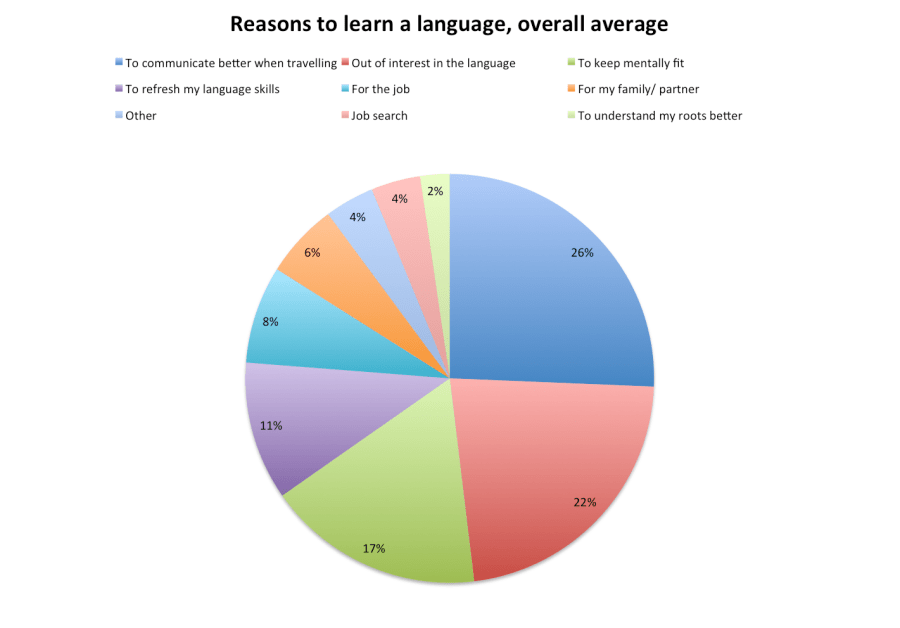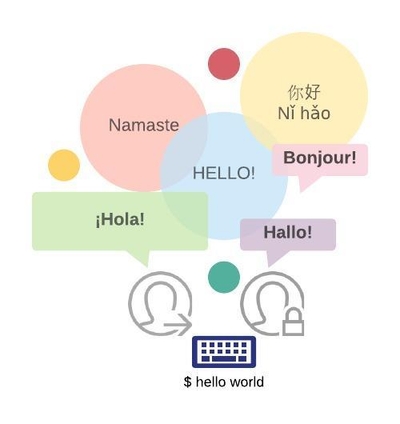Learning a language is a monumental task. All languages are not created equal so some are harder than others. The only difference between learning an easy language vs. a difficult language is the amount of time it will take to master it.
More often than not we start learning a language out of necessity rather than desire. According to a 2016 survey conducted by Babbel most people want to learn a language so they can communicate better while traveling.
What Do You Want To Learn?
Focusing your learning efforts is a great place to start. If you’ve already decided you want to learn a language for travel, it’s time to pick the language that best suits your destination.
Once you’ve picked a language, identify how you want to communicate while traveling. In the case of traveling, you’ll want to speak a language rather than read or write the language, so start with learning how to speak first. However, if you eventually want to read or write, you’ll want to start with learning how to speak, read, and write simultaneously. In any scenario, practice with all techniques for maximum effectiveness.
The ABCs
Learning a new language when you’re an adult isn’t much different than when you learned your first language. Start with the fundamentals and start learning the alphabet. Since you’re working on pronunciation, start learning it while speaking it at the same time. There are plenty of apps out there, like Duolingo, that will help you drill later when you know the alphabet. Try using some of these techniques to nail down your ability to learn a new alphabet in a foreign language.
Three Hundred Words
If you’re not looking to have a full conversation abroad, you can learn three-hundred to six-hundred words to make requests. If you are hoping to have a conversation, ratchet up your learning to three-thousand to six-thousand words.
Learning enough words to meet your goal will take some time. While I was learning German while living in Austria, I spent a lot of time performing dictation of words I wanted to learn. I would pick out a few words and start typing them out over and over until they stuck in my head.
Learn Grammar
Learning grammar is necessary if you want to develop coherent sentences. Learning grammar will mostly come with practice, but committing the grammar rules to memory can’t hurt. Spend some time upfront to learn the most common grammar rules, and better yet, learn why those grammar rules exist. Grammar is meant to clarify your speech by adding a structure that other people can quickly understand. While it’s possible to communicate with just words, it won’t get you very far in a conversation.
Wag Your Appendage
Once I had three to six hundred words under my belt, I started conversing with people at the local bar. When I was learning German, smartphones weren’t sophisticated so I had a trusty electronic language keyboard. I wonder to this day it was more effective than a smartphone. In the least, there weren’t any notifications to bother me while I was learning.

If you’re learning how to read or write, spend a lot of time reading and writing. If you can make a game of it, even better, games will keep you motivated and help you prioritize your work.
I’m No Expert
While I’ve learned German and know how to use many programming languages, I am not an expert. I prefer to remain humble and assume I don’t know any languages rather than say I know them all.
Be thirsty to learn more languages, and find the joy in opening new doors that were previously locked away from you. If you’re able to that, you’ll have no problem understanding how to learn a language.
